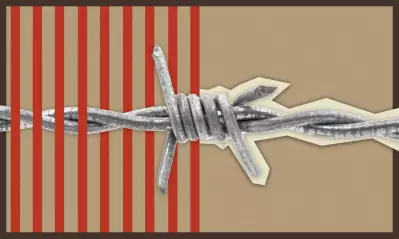Articles > Criminal Justice > Criminal justice organizations for students
Criminal justice organizations for students

Written by Michael Feder

Reviewed by Christina Neider, EdD, Associate Provost of Colleges

Why should students join criminal justice organizations?
The various criminal justice organizations can offer students educational and professional development opportunities, and give them a chance to network with those who share their interests.
Most importantly, criminal justice associations provide support for students outside of the classroom. Those already pursuing a criminal justice degree may be interested in these associations to stay up to date on issues, find resources and have a better idea of where they want their career to go.
With so many organizations dedicated to the criminal justice profession to choose from, it can be tough to narrow down the choices — especially when you’re evaluating the eligibility requirements and the benefits.
Here are some criminal justice organizations students interested in a career in the courts, public administration, law enforcement or security should know about. Most of these associations offer student membership, but their individual websites will be able to provide more information as to eligibility requirements, current dues and more.
1. Academy of Criminal Justice Sciences
The Academy of Criminal Justice Sciences (ACJS) is an overarching criminal justice organization for any student interested in criminal justice. This organization does everything from research to classroom instruction to advocacy for criminal justice reform.
A team of passionate professionals consisting of prosecutors, defense attorneys, activists and others who work in law enforcement established ACJS. Its mission is to enable members to learn more about the discipline of criminal justice while also providing a truly diverse education. The academy has hundreds of local, state and national chapters.
It also offers a lifetime membership as well as one for institutions. ACJS members may also receive discounts on academic and professional materials, corporate support for conferences and other activities, access to research journals, discounts for membership in other associations, and special interest group funding.
2. American Society of Criminology
The American Society of Criminology (ASC) is an organization focused on research, teaching, criminal justice, and the law. Measuring crime over time and studying the effects of legislation, as well as judicial and police review, are some of the major focuses of the ASC.
Members of the organization include professionals in various fields related to criminal justice, such as law enforcement personnel and social workers.
The society offers four types of membership. In its active member membership, dues are determined according to the member’s annual salary. There are also retiree and student memberships. Membership includes subscriptions to ASC’s electronic publications.
There is an option for in-person meetings at ASC’s annual conference, which takes place every November. The conferences provide members with the opportunity to develop skills, discover employment opportunities, and professionally connect with other members.
3. American Correctional Association
The American Correctional Association (ACA) is a nonprofit organization that works with all types of corrections facilities and their stakeholders, including corrections officials, state legislators, municipal government leaders and community stakeholders.
The ACA helps ensure safe and just detention by:
- Providing leadership on national, regional and local levels within the criminal justice field
- Ensuring effective management of public resources for offender supervision
- Developing standards for the operation of correctional facilities
- Advocating for sound public policy that supports quality corrections
If you’ve ever considered a career as a juvenile corrections officer, you might be curious about the benefits of joining the ACA.
In recent years, the ACA has expanded its support to include:
- Officer training
- Specialty certifications in various areas of corrections
- Networking opportunities for aspiring juvenile corrections officers
4. American Jail Association
The American Jail Association (AJA) was formed to bring together professionals from different fields involved in prison management. The AJA has specific certification programs for different roles in prison management, including a Certified Jail Officer (CJO) program and Certified Jail Supervisor (CJS) program.
The AJA focuses primarily on research, education and professional development in corrections. It also offers training courses for workers within correctional facilities.
AJA membership at the professional level is available to those actively working in law enforcement or corrections. There are also membership tiers for retired law enforcement and corrections professionals, and corporate and industry affiliate corrections professionals. Student membership in AJA is open to full-time students who are not yet employed in corrections.
5. American Academy of Forensic Sciences
The American Academy of Forensic Sciences (AAFS) is a nonprofit organization that facilitates communication among forensic scientists and the public. Members of the academy are:
- Board certified in their field of expertise
- Involved in research, instruction, training and publication in their scientific fields
- Practicing forensic science in all aspects related to the application of physical science to civil and criminal law, including juror education and testimony
The AAFS is unique among criminal justice organizations within forensic sciences that provides a forum to openly discuss issues affecting the field.
It also promotes and encourages research, education and training in all areas of forensic science and related disciplines.
To join the AAFS as a “Student Affiliate,” applicants have to be enrolled in either an undergraduate or graduate forensic science program approved by the AAFS. Professionals looking to join the AAFS at an associate level must complete the four criteria listed on the AAFS website , including being actively engaged in forensic science and have completed a baccalaureate degree at an accredited institution.
6. International Association of Women Police
The goal of the International Association of Women Police (IAWP) is to unite women police officers to create a stronger police force. The IAWP works toward this goal by hosting networking opportunities, providing resources for professional development, and sponsoring an annual conference for members.
The IAWP also provides a scholarship program for children and grandchildren of female law enforcement agents and mentorships between veterans and newer recruits.
According to the IAWP website , “All law enforcement officers with the power of arrest, who are/were full-time officers, are eligible for active membership in the Association.”
Benefits of joining a student criminal justice organization
Joining a well-known association for criminal justice has many benefits for students. Potential employers may look favorably on this because it shows initiative and a commitment to professional growth.
Additional benefits of joining a criminal justice association include:
- Access to a diverse network
of criminal justice professionals in different fields who can provide a valuable source of advice and support, especially as opportunities for internships and jobs come up in their field of study
- Gaining insight into how other fields within criminal justice can aid them in future career choices
- Opportunities to network with other professionals in the same field
- A way to keep up on new ideas in the criminal justice field and stay current on trends and policy issues
Joining a criminal justice association can help you connect with like-minded people who have a passion for the justice system and the rule of law.
Joining criminal justice organizations while pursuing a degree
Criminal justice organizations can complement an academic and career journey. If you're considering starting a criminal justice degree program, University of Phoenix offers associate, bachelor's and master's degrees in criminal justice, security and public administration. UOPX courses are taught by industry professionals with an average of 25 years of experience in the fields they teach.
Take a look at the criminal justice programs at University of Phoenix:
- Associate of Arts in Criminal Justice
- Bachelor of Science in Correctional Program Support Services
- Bachelor of Science in Criminal Justice Administration
- Bachelor of Science in Public Administration
- Master of Public Administration
- Master of Science in Administration of Justice and Security
Questions? Get in touch with UOPX for answers.

ABOUT THE AUTHOR
A graduate of Johns Hopkins University and its Writing Seminars program and winner of the Stephen A. Dixon Literary Prize, Michael Feder brings an eye for detail and a passion for research to every article he writes. His academic and professional background includes experience in marketing, content development, script writing and SEO. Today, he works as a multimedia specialist at University of Phoenix where he covers a variety of topics ranging from healthcare to IT.

ABOUT THE REVIEWER
Christina Neider is the associate provost of colleges and former dean of the University of Phoenix College of Social and Behavioral Sciences. Neider’s career spans more than 30 years in academia, healthcare and the U.S. Air Force. She has held several academic leadership roles at University of Phoenix, and she is the Vice President of membership for the Arizona Chapter of the Healthcare Information and Management Systems Society.
This article has been vetted by University of Phoenix's editorial advisory committee.
Read more about our editorial process.


